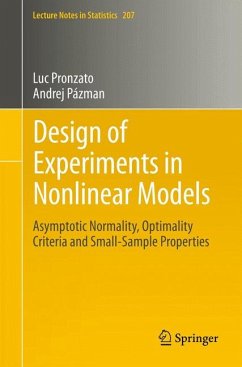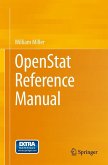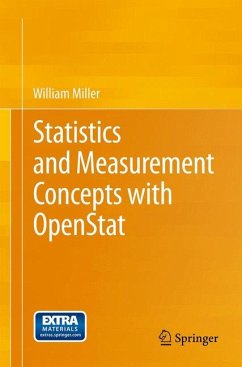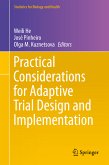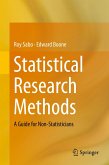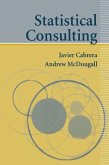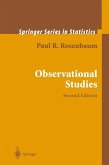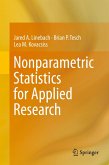The first three chapters expose the connections between the asymptotic properties of estimators in parametric models and experimental design, with more emphasis than usual on some particular aspects like the estimation of a nonlinear function of the model parameters, models with heteroscedastic errors, etc. Classical optimality criteria based on those asymptotic properties are then presented thoroughly in a special chapter.
Three chapters are dedicated to specific issues raised by nonlinear models. The construction of design criteria derived from non-asymptotic considerations (small-sample situation) is detailed. The connection between design and identifiability/estimability issues is investigated. Several approaches are presented to face the problem caused by the dependence of an optimal design on the value of the parameters to be estimated.
A survey of algorithmic methods for the construction of optimal designs is provided.
Dieser Download kann aus rechtlichen Gründen nur mit Rechnungsadresse in A, B, BG, CY, CZ, D, DK, EW, E, FIN, F, GR, HR, H, IRL, I, LT, L, LR, M, NL, PL, P, R, S, SLO, SK ausgeliefert werden.
"This book introduce basic concepts and discuss asymptotic properties of estimators in nonlinear models. ... a major emphasis of the book is on deriving the asymptotic properties of estimators from properties of the experimental design. ... this book covers a wealth of material, including algorithms for finding optimum designs. I believe this book is an excellent reference for researchers. It also might be suitable for an advanced graduate course." (William I. Notz, Mathematical Reviews, March, 2014)

